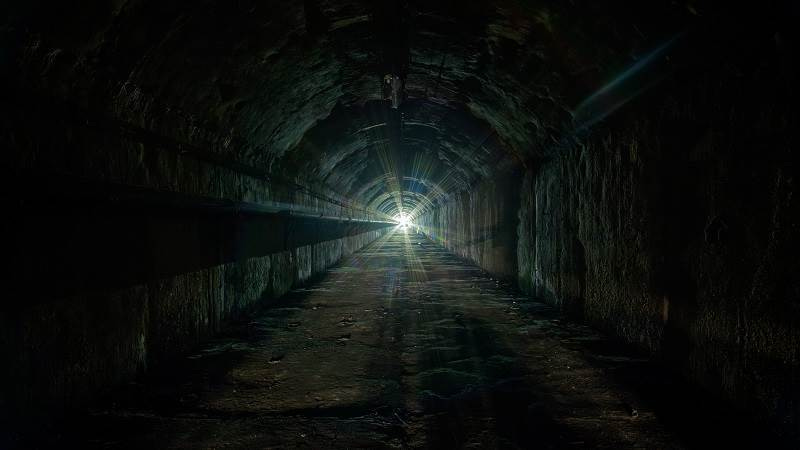The Great Destroyer
Developing nations have many hurdles to overcome in their quest to become first-world and elevate their citizens to first-world living standards. Such development requires wealth creation, which is rooted in people doing things that create commerce and improve productivity. Centrally planned economies do this top-down, free-market economies do this bottom-up. History tells us which one (you should, by now, know that it's the latter) works better, but both face a major obstacle.
Corruption.
Most think of high-ranking politicians and their self-serving shenanigans (in cahoots with private-sector rent seekers and cronies) when corruption is brought up, but among the very worst underminers in developing nations is the low-level grift. Having to bribe or otherwise pay off bureaucrats, police, and other skimmers in your quest to start up a business that will employ people and produce sellable products has terminated or killed-at-inception more endeavors that we can imagine. At the heart of that sort of corruption is a lack of rule-of-law, both in concept and in enforcement. When this disregard seeps into the populace, it ensures stagnation or decay rather than positive evolutionary growth. If the system doesn't play fair or follow the rules, the people won't either, and any hope of harmony gives way to a negative-sum mindset, where few care about the whole and many look to get "theirs" no matter the broader harm.
Governments, in order to avoid this trap, must lead by example. Corruption there will always be, but if, when it's discovered, it is prosecuted without regard for "who," the message sent is positive. If it is ignored or selectively prosecuted, the message sent is lighter fluid on an already-destructive fire.
We expect politicians to be partisan, to lie, to exaggerate, to hyperventilate and bloviate, and to succumb to various temptations. All but the very wealthiest politicians need campaign contributions, and most of them spend most of their time hustling for dollars. The honest ones say "this is what I plan to do. If you like it, help me out." Others say "If you help me out, I can tip things in your favor." The latter is cronyism, and it sucks. Unfortunately, it's also how things have evolved in American politics, high and low, across the decades.
Even cronyism, however, isn't as destructive as the institutional rot we're witnessing these days. While it's not unique in our history (government law enforcement has been weaponized before), the much broader visibility today's technology offers sends that lighter-fluid message out to everyone.
Our leaders make a big show of fighting low-level corruption (try giving a cop a can of soda one day), but this serves as a smokescreen for the high-level shenanigans that seek to change voters' perceptions and actually tip elections. Just one glaring example - the Hunter Biden laptop suppression scandal which many sought (and still seek) to deflect onto private sector actors - is a national disgrace that may indeed have swung the last election toward his dotard dad. And, now, investigation into substantive allegations of corruption in the Biden family is being stonewalled, and the Fourth Estate is either ignoring or covering them up.
This is just the latest of many examples of what some refer to as the "Deep State," i.e. the mass of government employees who aren't elected or swapped out every election and instead work against the will of the People as expressed by electoral outcomes. The supposed "smart ones" who sneak their own policy preferences into the workings of the government by diverting, delaying, or otherwise altering the will of the President or Congress or the Court. Yes, many felt that this Deep State would save us from Trump's excesses, but as we saw, it grossly overstepped that desire and in the process earned a deep suspicion and distrust from the citizenry.
This top-down corruption is worse than the leaders of banana republics simply fleecing their treasuries, and is as destructive as the bottom-up corruption that's been the bane of developing nations in Africa and Asia. People should distrust government in order to keep it honest, but if the government gives up on that honesty, what happens next?
Americans have mistaken poor leadership for great leadership in the past, poor leadership that led us into down times, or worsened them. Yes, I speak of Wilson, Hoover, FDR, and LBJ. While I wasn't around for Wilson's Progressive Movement, Hoover's economic follies, FDR's exacerbation of the Great Depression, or LBJ's corrosive Great Society, I do remember the 70s, Nixon's boneheaded moves regarding inflation and the gold standard. I remember Carter's malaise. America has recovered from bad times and bad rifts (need I mention the Civil War here?) in the past, and I'm certain she can again.
But, recovery requires not only good leadership, it requires leadership that will work to restore the proper functioning of government, rather than weaponizing it against opponents. Yet, weaponizing is what voters seem to want now, and even Ron DeSantis, the only (at this stage) genuine alternative to Biden and Trump, is guilty of weaponization. Perhaps he'll grow past that sordid Disney feud if he enters the White House, but that's a big question. There's no* question, on the other hand, that more Biden or more Trump will mean more partisan weaponization and more Deep State chicanery. We might be able to see a light at the end of this tunnel, but it's not only a long tunnel, it has many branches into further darkness.



That’s a very good piece!
If I believed voting could get us out of, or change the trajectory of, the long, dark tunnel of government top-down corruption, there would be room for hope. But voting as a means to turn around the existing system is a pipedream.